Human Intelligence
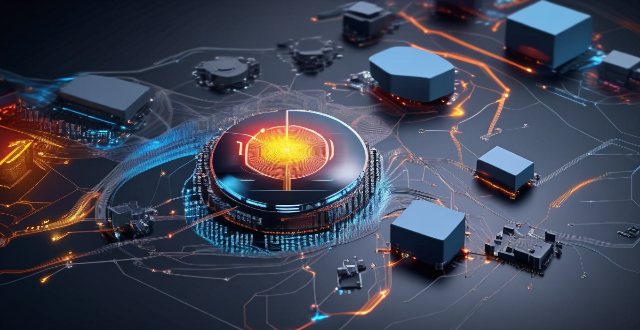
What is artificial intelligence and how does it work ?
Artificial Intelligence (AI) is a branch of computer science that simulates human intelligence in machines. It involves the use of algorithms and statistical models to analyze and interpret data. The process includes data collection, preprocessing, feature extraction, model training, evaluation, deployment, and continuous learning. AI systems are capable of performing tasks that usually require human intelligence, such as interpreting natural language, recognizing patterns, solving problems, and making decisions.

What role does artificial intelligence play in automation ?
Artificial intelligence (AI) plays a significant role in automation by enabling machines to perform tasks that typically require human intelligence, such as learning, problem-solving, and decision-making. AI technology has revolutionized the way we live and work, making it possible to automate various processes and systems. In this article, we will discuss the different ways AI is used in automation, including machine learning, natural language processing, computer vision, robotics, predictive maintenance, smart homes and buildings, and autonomous vehicles.
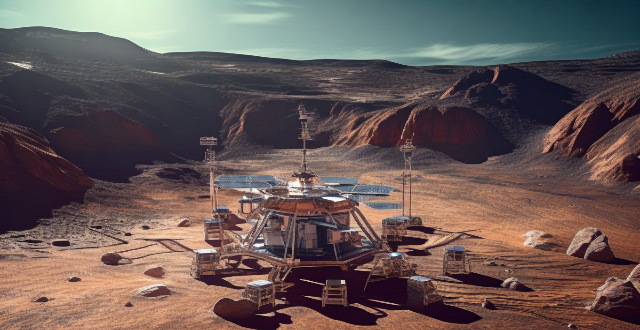
What is the role of artificial intelligence in modern rocket technology ?
The article discusses the pivotal role of Artificial Intelligence (AI) in revolutionizing various aspects of modern rocket technology. It explores how AI is transforming design and manufacturing processes, including computational fluid dynamics simulations, machine learning-driven material science, and automated manufacturing. The text also delves into AI's contributions to launch and orbital insertion, such as predictive maintenance, trajectory optimization, and real-time decision making. Furthermore, it highlights AI applications in on-orbit operations like autonomous navigation, swarm intelligence, and fault detection and recovery. The article concludes by discussing future implications of AI in deep space exploration, reusable rocketry, and collaborative robotics, emphasizing its potential to make space missions safer, more efficient, and cost-effective.

What is the importance of emotional intelligence in sports leadership ?
Emotional intelligence is crucial for sports leadership, including empathy, communication skills, decision-making, conflict resolution, and motivation. Leaders with high EI can create a positive environment, make informed decisions, and inspire their team members to achieve success.

How can women develop their emotional intelligence in the workplace ?
Emotional intelligence (EQ) is a crucial skill for success in the workplace, especially for women who often face unique challenges and biases. Developing EQ can help women navigate complex social dynamics, build strong relationships, and lead effectively. Here's how they can enhance their emotional intelligence: Self-awareness involves understanding your own emotions and practicing self-reflection. Self-regulation means managing your emotions and staying calm under pressure. Motivation includes setting goals and finding sources of inspiration. Empathy involves listening actively and showing compassion. Social skills entail improving communication and building relationships. Continuous learning means seeking feedback and engaging in training. By focusing on these key areas, women can enhance their ability to navigate the workplace effectively. Remember that developing EQ is an ongoing process that requires practice, patience, and a commitment to personal growth.

Can AI replace human decision-making in complex situations ?
Artificial intelligence (AI) has made significant strides in recent years, leading to discussions about its potential to replace human decision-making in complex situations. While AI possesses certain advantages, such as speed and accuracy, it still faces limitations that prevent it from fully replacing humans in decision-making processes. Advantages of AI in decision-making include speed and efficiency, accuracy and consistency, and scalability. However, AI also has limitations such as lack of creativity, ethical considerations, and interpretability. Examples of complex situations where AI may not replace human decision-making include medical diagnosis, legal judgments, and business strategy. In conclusion, while AI has the potential to assist humans in decision-making processes, it cannot fully replace them in complex situations. The combination of AI's analytical capabilities and human creativity, ethics, and intuition will likely lead to better outcomes in these scenarios.
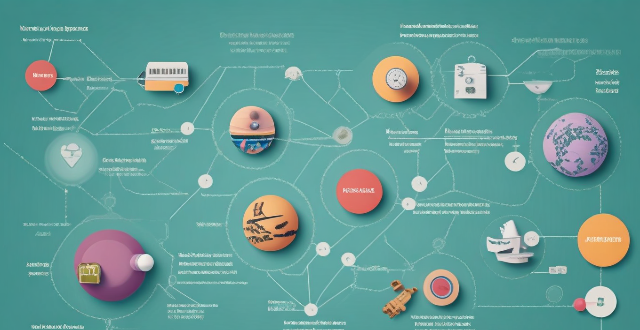
Is there a risk that AI could replace human referees or umpires in sports ?
The article discusses the potential risks and benefits of using Artificial Intelligence (AI) in sports officiating. The benefits include improved accuracy, increased efficiency, and consistency across games. However, there are also risks such as lack of human judgment, cost and accessibility, and potential for bias. It is important to address these risks and ensure that AI systems complement rather than replace human referees or umpires.
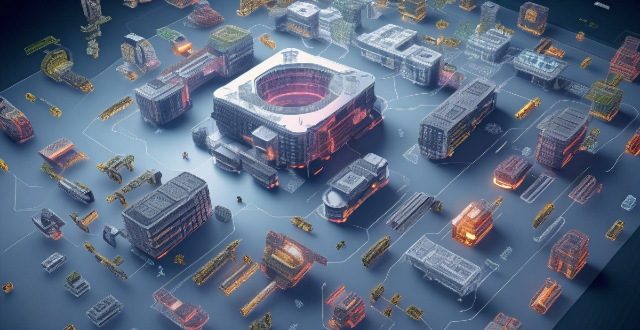
What is the role of robotics and artificial intelligence in future interstellar missions ?
The article discusses the role of robotics and artificial intelligence (AI) in future interstellar missions. The key areas where these technologies will make a difference include autonomous navigation and control, maintenance and repair, scientific research and data collection, and colony establishment and management. However, there are challenges to consider such as reliability, security, and ethical considerations. Overall, robotics and AI will play an integral role in overcoming the immense challenges of traveling to distant stars.

What are the latest technological innovations in the field of artificial intelligence ?
Artificial Intelligence (AI) is a rapidly evolving field that has seen significant advancements in recent years. The latest technological innovations include Natural Language Processing (NLP), Computer Vision, and Machine Learning. NLP focuses on enabling machines to understand and generate human language, while Computer Vision enables machines to interpret and analyze visual information. Machine Learning is a subset of AI that involves training algorithms to learn from data without being explicitly programmed. These innovations have the potential to transform various industries and improve our daily lives.

How can we ensure that climate action is consistent with human rights ?
To ensure that climate action is consistent with human rights, we need to adopt a holistic approach that takes into account the social, economic, and environmental dimensions of sustainability. Some strategies include recognizing the interdependence between climate action and human rights, integrating human rights into climate policy, ensuring transparency and accountability, promoting participatory democracy, strengthening legal frameworks, and building capacity and providing support to vulnerable populations. By doing so, we can create a more equitable and just world for all.

What role do artificial intelligence and machine learning play in medical diagnostics ?
The text discusses the role of AI and ML in medical diagnostics, highlighting their importance in improving diagnosis accuracy, reducing errors, and streamlining workflow. The technologies are transforming healthcare by providing faster, more accurate, and cost-effective solutions. Key roles include image recognition, genetic analysis, automating routine tasks, enhancing decision support, predictive analytics, and optimizing resource allocation.

What are the legal frameworks for addressing climate change and human rights ?
The text discusses the various legal frameworks that exist to address climate change and human rights, including international agreements, national laws, and regional regulations. It highlights the importance of a multifaceted approach to tackle this complex issue and emphasizes the need to protect vulnerable communities' rights in the process. The text also provides examples of specific initiatives taken by different entities such as the United Nations, the United States, the European Union, the African Union, and the Association of Southeast Asian Nations. Overall, the text suggests that by working together at these different levels, we can create a more equitable and sustainable future for all.

Can climate change be considered a human rights issue ?
The text discusses the impact of climate change on human rights, focusing on health and safety, access to resources, displacement and migration, and intersectionality. It argues that climate change can be considered a human rights issue because it has the potential to violate several fundamental rights enshrined in international law. The text concludes that addressing climate change is crucial for protecting and promoting human rights globally.

How is artificial intelligence being used to create new forms of entertainment ?
Artificial intelligence (AI) is revolutionizing the entertainment industry by creating new forms of entertainment that were not possible before. AI has enabled the development of personalized and interactive experiences that engage audiences in ways never seen before. Here are some examples of how AI is being used to create new forms of entertainment: 1. Personalization: AI algorithms are being used to personalize entertainment content for individual users. For example, streaming services like Netflix and Amazon Prime use AI to recommend movies and TV shows based on a user's viewing history and preferences. 2. Interactive Experiences: AI-powered virtual assistants and chatbots are being used to create interactive experiences that allow users to engage with entertainment content in new ways. For example, the game "Detroit: Become Human" uses an AI-powered system to allow players to interact with characters in the game in a natural and realistic way. 3. Content Creation: AI is also being used to create new forms of entertainment content. For example, AI-generated music and art are becoming increasingly popular. AI algorithms can analyze existing music and art to create new pieces that are unique and original. 4. Gaming: AI is being used to enhance gaming experiences by creating more realistic and challenging gameplay. For example, AI-powered non-player characters (NPCs) can behave more realistically and adapt to a player's actions, making the game more engaging and challenging. 5. Virtual Reality and Augmented Reality: AI is being used to create more immersive virtual reality (VR) and augmented reality (AR) experiences. For example, AI algorithms can track a user's movements and adjust the VR or AR environment in real-time to create a more realistic and engaging experience. In conclusion, AI is being used to create new forms of entertainment that are more personalized, interactive, and engaging than ever before. From personalized recommendations to AI-generated content, the possibilities for AI in the entertainment industry are endless. As AI technology continues to evolve, we can expect even more innovative and exciting forms of entertainment to emerge.

Is the greenhouse effect a natural phenomenon or human-induced ?
The greenhouse effect is a natural process that helps maintain Earth's climate, but human activities have significantly increased greenhouse gas concentrations, leading to an enhanced or "human-induced" effect. This has resulted in global warming and other environmental issues, such as rising sea levels, extreme weather events, and ocean acidification.

What are the responsibilities of governments in addressing climate change and protecting human rights ?
Governments worldwide have a crucial role in addressing climate change and protecting human rights. Their responsibilities include legislation, public awareness, research, international cooperation, adaptation measures, protection of human rights, alignment with Sustainable Development Goals, and monitoring progress. By taking proactive steps in these areas, governments can create a sustainable future for all citizens while respecting their fundamental rights.
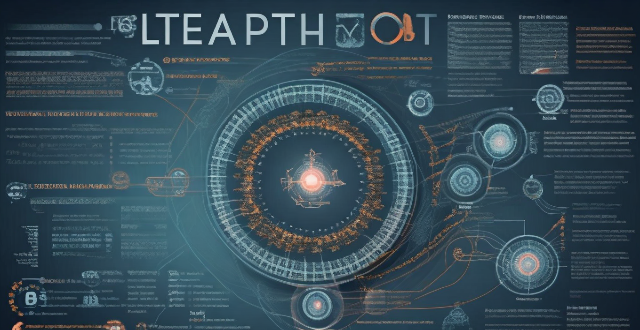
How do data protection regulations apply to artificial intelligence and machine learning ?
The article discusses the relationship between data protection regulations and artificial intelligence (AI) and machine learning (ML). It highlights that these technologies require large amounts of personal data, which raises concerns about privacy and security. The article outlines key considerations for ensuring compliance with data protection regulations, such as transparency, accountability, automated decision-making, and data minimization. It also provides best practices for organizations to implement AI/ML systems while maintaining compliance with data protection laws.

How might global warming influence future patterns of human migration ?
Global warming is poised to significantly influence future patterns of human migration through various channels, including sea level rise, changes in agricultural zones, extreme weather events, economic impacts, health considerations, and social and political factors. These changes will contribute to shifts in where and how humans choose to live, forcing coastal communities to relocate, increasing the risk of flooding in currently habitable areas, movement away from regions that become too hot or dry for farming, shifts toward more favorable climates for growing crops, increased frequency and intensity of extreme weather events, decline in traditional industries like fishing or agriculture in certain regions due to changing conditions, growth in new industries related to renewable energy or climate adaptation in other areas attracting workers, spread of diseases like malaria and dengue fever to new regions as the organisms that carry them move into warmer areas making some areas less hospitable for human habitation due to heat-related illnesses becoming more common, conflicts over resources like water and arable land which may be exacerbated by climate change, and government policies on resettlement and climate adaptation measures that could either facilitate or hinder migration.

How do communication satellites support military operations and intelligence gathering ?
This text discusses how communication satellites support military operations and intelligence gathering, highlighting their role in secure communication channels, wide area coverage, high-speed data transmission, surveillance and reconnaissance, coordination and command, resilience and redundancy.

How will the rise of automation and artificial intelligence affect employment opportunities in future cities ?
The rise of automation and artificial intelligence (AI) is expected to have a significant impact on employment opportunities in future cities. This transition will likely result in decreased demand for certain jobs, particularly those involving repetitive tasks or moderate skills, while increasing the need for specialized skills in areas like software development and data analysis. To adapt to these changes, strategies such as lifelong learning, job retraining programs, and collaboration between businesses and educational institutions are recommended. It is crucial for individuals, governments, and businesses to proactively prepare for these shifts to ensure a diverse and resilient workforce.

Is climate variability increasing due to human activities, such as greenhouse gas emissions ?
The text discusses the topic of whether climate variability is increasing due to human activities, especially greenhouse gas emissions. It explains that climate variability refers to the range of weather conditions in a region and that natural factors can influence it. However, the focus is on the role of human activities, such as burning fossil fuels for energy, deforestation, and industrial processes, which have led to a significant increase in greenhouse gas emissions. These emissions trap heat in the Earth's atmosphere, causing a warming effect known as the greenhouse effect. The text then explains that the increase in greenhouse gas concentrations has several effects on climate variability, including changes in temperature, precipitation patterns, sea level rise, and extreme weather events. It also mentions that there is a scientific consensus that human activities are the primary driver of recent climate change. In conclusion, the text states that climate variability is indeed increasing due to human activities, particularly greenhouse gas emissions, and that global efforts to reduce these emissions and mitigate the impacts of climate change are crucial.

What role does artificial intelligence play in Fintech ?
The Role of Artificial Intelligence in Fintech Artificial intelligence (AI) has revolutionized the financial technology (Fintech) industry by making financial services more efficient, personalized, and accessible. AI is used in various ways in Fintech, including risk management and fraud detection, personalized customer experience, automated trading and investment management, credit scoring and loan approvals, and regulatory compliance and reporting. These applications have improved the accuracy and speed of financial processes, reduced costs, and enhanced customer satisfaction. As AI technology continues to advance, it will likely lead to even more innovative applications in Fintech.
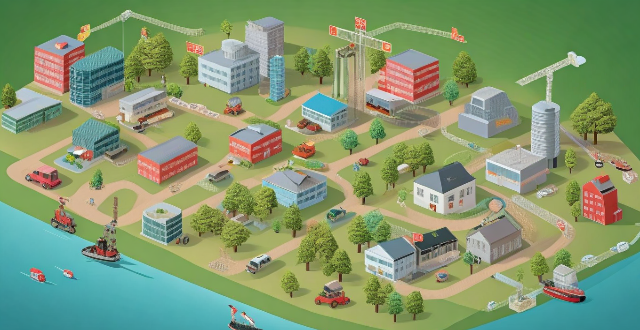
How can we balance economic development with climate action and human rights protection ?
Balancing economic development with climate action and human rights protection requires prioritizing sustainable development, integrating climate action into economic planning, protecting human rights, and collaborating across sectors. Governments and businesses should adopt policies and practices that promote renewable energy sources, reduce greenhouse gas emissions, encourage investment in green technologies, support small-scale farmers, promote fair trade practices, develop national climate plans, invest in research and development of new technologies, provide incentives for eco-friendly behaviors, ensure equal access to education, healthcare, and other basic services, protect the rights of marginalized communities, promote gender equality, enforce laws that protect workers' rights, establish cross-sectoral partnerships, encourage dialogue and consultation between stakeholders, support local initiatives, and encourage international cooperation.

What is the significance of emotional intelligence in educational psychology ?
Emotional intelligence (EI) plays a pivotal role in educational psychology, impacting student success and well-being. Key aspects of EI include self-awareness, self-regulation, motivation, empathy, and social skills. For students, high EI correlates with better academic performance, social skill development, mental health, and resilience. For teachers, it enhances classroom management, instructional strategies, student relationships, and professional development. Schools benefit from a positive culture, effective intervention programs, and increased parental involvement when focusing on EI. Integrating EI into education fosters a generation equipped for academic, emotional, and social success.
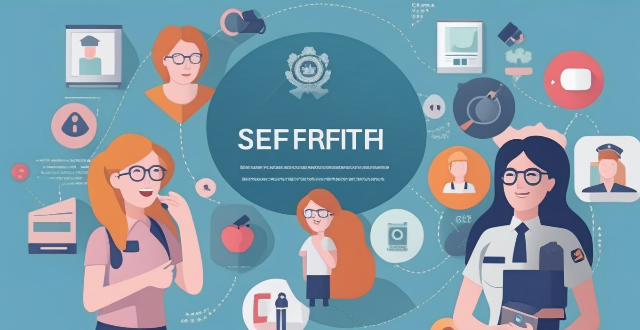
How effective are current policies in preventing human trafficking, especially affecting women and girls ?
This text discusses the effectiveness of current policies in preventing human trafficking, focusing on international cooperation, legal measures, public awareness campaigns, protection and support services, economic development initiatives, and technology and innovation. It highlights that while these policies have made strides in raising awareness and strengthening legal frameworks against human trafficking, particularly affecting women and girls, there is still much work to be done. The complexity of the issue demands a multifaceted approach that combines law enforcement with social services, international cooperation with grassroots action, and traditional methods with innovative solutions. Continuous evaluation and adaptation of these policies are necessary to ensure they remain effective in protecting vulnerable populations from this grave violation of human rights.

Why is it important to address violence against women as a human rights issue ?
Violence against women is a widespread problem that violates basic human rights and has far-reaching consequences for individuals, families, communities, and society at large. Addressing violence against women as a human rights issue is essential for upholding these basic rights, promoting gender equality, breaking the cycle of poverty and marginalization, and fulfilling our legal obligations under international law. By raising awareness about this issue and working towards creating a world where all individuals can live free from fear and violence, we can help create a more equitable and just society for all.